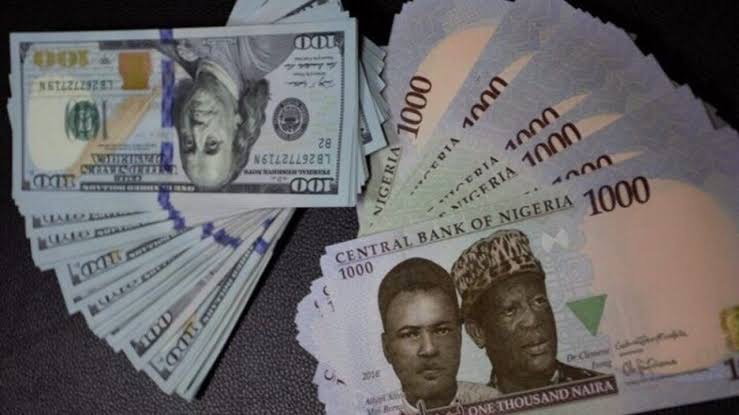The Naira, Nigeria’s currency, continued its appreciation against the US dollar on the official foreign exchange (FX) reaching the highest of N1,255.07/$1 since three months.
The last time the Naira was stronger than the current exchange rate was in January 26, 2024 when it closed at N891.90 per dollar at the Nigerian Autonomous Foreign Exchange Market (NAFEM), according to the data compiled from the FMDQ Securities Exchange.
With the current exchange rate, Naira has gained 29.67 percent when compared to the lowest of N1,627. 40 per dollar in March 8, 2024, at NAFEM.
The summary of the FX auction on Thursday revealed that Naira strengthened by 0.62 percent as the dollar was quoted at N1,255.07, stronger than N1,262.85 quoted on Wednesday at NAFEM.
According to the FMDQ data, the intraday high closed at N1,294 per dollar on Thursday, stronger than N1,296/$1 closed on Wednesday. Also, the intraday low was strong at N1,200 per dollar on Thursday as against N1,210 on Wednesday.
Dollar supply by willing sellers and willing buyers at NAFEM, including commercial banks increased by 16.36 percent to $138.99 million on Thursday from $166.18 million recorded on Wednesday.
The Naira on Thursday exchanged flat with the US dollar on the parallel market, commonly referred to as black market.
The dollar, which was quoted at between N1,250 and N1,260 on Wednesday, remained the same on Thursday at the black market.
The exchange rate gap between the black market and the official market has narrowed to N5 per dollar.
The Naira appreciation has been attributed to series of foreign exchange policy measures introduced by the Central Bank of Nigeria (CBN).
As part of measures to control inflation and stabilise the Naira, the CBN last month raised its benchmark interest rate, known as the Monetary Policy Rate (MPR) by 200 basis points to 24.75 percent from 22.75 percent in February 2024.

On June 14, 2023, the Central Bank of Nigeria (CBN) enacted several significant reforms, including the abolishment of market segmentation, consolidation of all segments into the Investors & Exporters window (now called the Nigerian Autonomous Foreign Exchange), and the reintroduction of the Willing Buyer, Willing Seller framework.
In August 2023, the CBN resumed Forex sales to Bureau de Change (BDCs) but implemented a restriction on the buying and selling spread by BDCs to +/-2.5 percent of the weighted average of transactions executed the previous day on the I&E window.
In January 2024, the apex bank imposed a limit on the Net Open Position (NOP) of banks in Nigeria, setting it at a maximum of 20 percent short or zero percent long holding of foreign currency assets and liabilities. Additionally, the CBN directed International Money Transfer Operators (IMTOs) to quote an exchange rate for Naira payout to beneficiaries based on the prevailing market price.
In February 2024, the CBN removed any caps on the spread on interbank Forex transactions and lifted restrictions on the sales of interbank proceeds. Furthermore, the CBN restricted the payout of Personal Travel Allowance (PTA) and Business Travel Allowance (BTA) to electronic channels only.
According to FSDH Research, the implementation of these measures has contributed to the reduction of volatility in the Naira in the FX markets.
By March 2024, the volatility of the Naira had further decreased following additional reforms by the CBN aimed at enhancing transparency and inflows into the FX market. On March 28, the NAFEM closing rate stood at N1309.4, reflecting a significant appreciation from its peak of N1,650 on February 26, 2024.
Analysts at FSDH expressed optimism, stating, “We believe that the recent FX reforms, coupled with high interest rates and improved oil production, will bring stability to the FX market.”
Olaitan Ibrahim